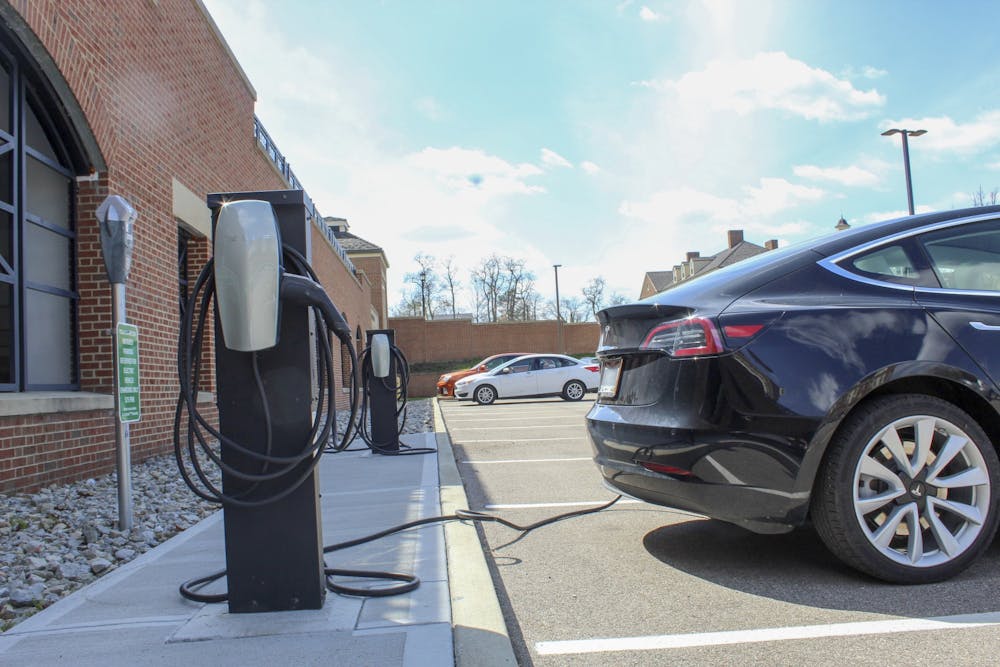Miami University and Oxford have received grants from the Ohio Environmental Protection Agency (OEPA) to install new electric car charging stations.
The grants came from the OEPA’s share of the Volkswagen Mitigation Trust Fund, which was created as a settlement after Volkswagen’s emissions scandal.
The electric vehicle charging stations for both Miami and Oxford are set to be installed during the summer or fall of this year, said Adam Sizemore, Miami’s director of sustainability and Jessica Greene, Oxford’s assistant city manager.
Currently, Oxford only has one electric car charging station, located at Miami’s North Campus Garage on Withrow Street. There are two connectors with up to ten kilowatts.
Sizemore wrote in an email to The Miami Student that seven new level 2 dual port charging stations will be installed in different locations on campus. There will be two stations at the Chestnut Fields parking lot, two at the Ditmer Lot, two at Millett Hall and one at the Marcum Hotel and Conference Center.
“Level 2 charging stations take roughly 4-5 hours to charge a vehicle, which is why we’re installing them in remote/commuter lots,” Sizemore wrote.
Two Level 2 charging stations will also be installed at the Uptown Parking Garage. Greene said the city hopes to install more chargers with faster charging times.
“We, in the future, would like to apply for additional grants for what’s called a level 3 charging station, which is a faster charging station,” Greene said. “Our goal, if awarded, would be to install those on our surface parking lot, so the one where the farmers market is.”

Alexandria Coffman, president of EcoReps, hopes more charging stations will encourage more faculty and students to use electric cars.
Enjoy what you're reading?
Signup for our newsletter
Chantel Raghu, City Council’s representative for the environmental commission, said Oxford having more electric car charging stations will help the city become more environmentally friendly.
“It’s huge,” Raghu said. “It’s a really good first step in the right direction as far as from a sustainability standpoint.”
Raghu said she thinks electric cars will be more popular in the future as the Earth’s fossil fuel supply continues to diminish.
“Fossil fuel companies know that there’s only so much fossil fuels and oil and gas on our planet, and they know that we’re kind of reaching a point where, even though they’re fracking and they’re getting a lot more oil out with new technology, there’s still only so much,” Raghu said. “The costs and the technology for electric cars is just going to increasingly get lower and more affordable.”
Alexandria Coffman, a sophomore urban and regional planning and sustainability double major and president of EcoReps, said having more charging stations is important because it creates opportunities for people to use electric cars.
“Our current transportation networks are designed for cars, so a lot of students and faculty use cars as a general mode of transportation,” Coffman said. “I think that having multiple charging stations allows more students and faculty to potentially use electric or plug-in hybrid cars.”
Sizemore wrote the chance to install more charging stations gives Miami the opportunity to continue its goal of being more sustainable.
“We were able to take advantage of this opportunity to build up our campus electric vehicle charging infrastructure as electric vehicles become more accessible and available,” Sizemore wrote. “Installing this infrastructure helps pursue our institutional carbon neutrality goal.”




